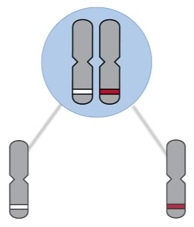Genetics and genomics for midwifery practice v2
2. Why is understanding genetics and genomics important for a midwife?
 In your role as a midwife, a knowledge of genetics and inheritance is relevant throughout your practice, for example, when following a specialist care plan during delivery and examining and caring for a newborn. However, undertaking initial assessments in the early antenatal period is when most information gathering, recording and interpretation occur.
In your role as a midwife, a knowledge of genetics and inheritance is relevant throughout your practice, for example, when following a specialist care plan during delivery and examining and caring for a newborn. However, undertaking initial assessments in the early antenatal period is when most information gathering, recording and interpretation occur.
It is important to recognise individuals and families who have inherited conditions because their family members may be at an increased chance of developing the condition or of being a carrier. Some conditions are caused by chromosome anomalies and modern techniques can help us to understand their clinical implications. Other conditions are due to a combination of genetic changes which predispose a person to a condition. So, a midwife’s understanding of genetics and inheritance is important for the fetus, the mother and the wider family.
Genomic information is increasingly being used to understand the underlying basis of disease, to refine diagnoses, target treatment and diagnose infections. Midwives may therefore see families where previously unknown genetic disease has been identified, or where the cause of multiple fetal anomalies has been shown to be due to problems with several genes.